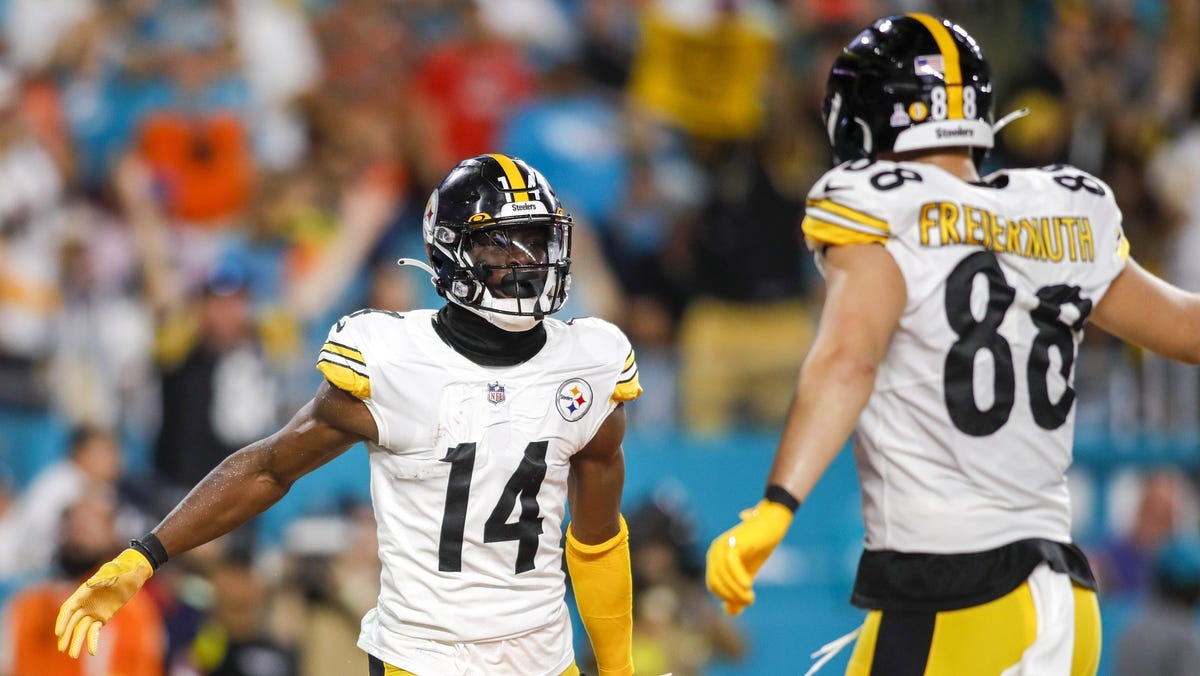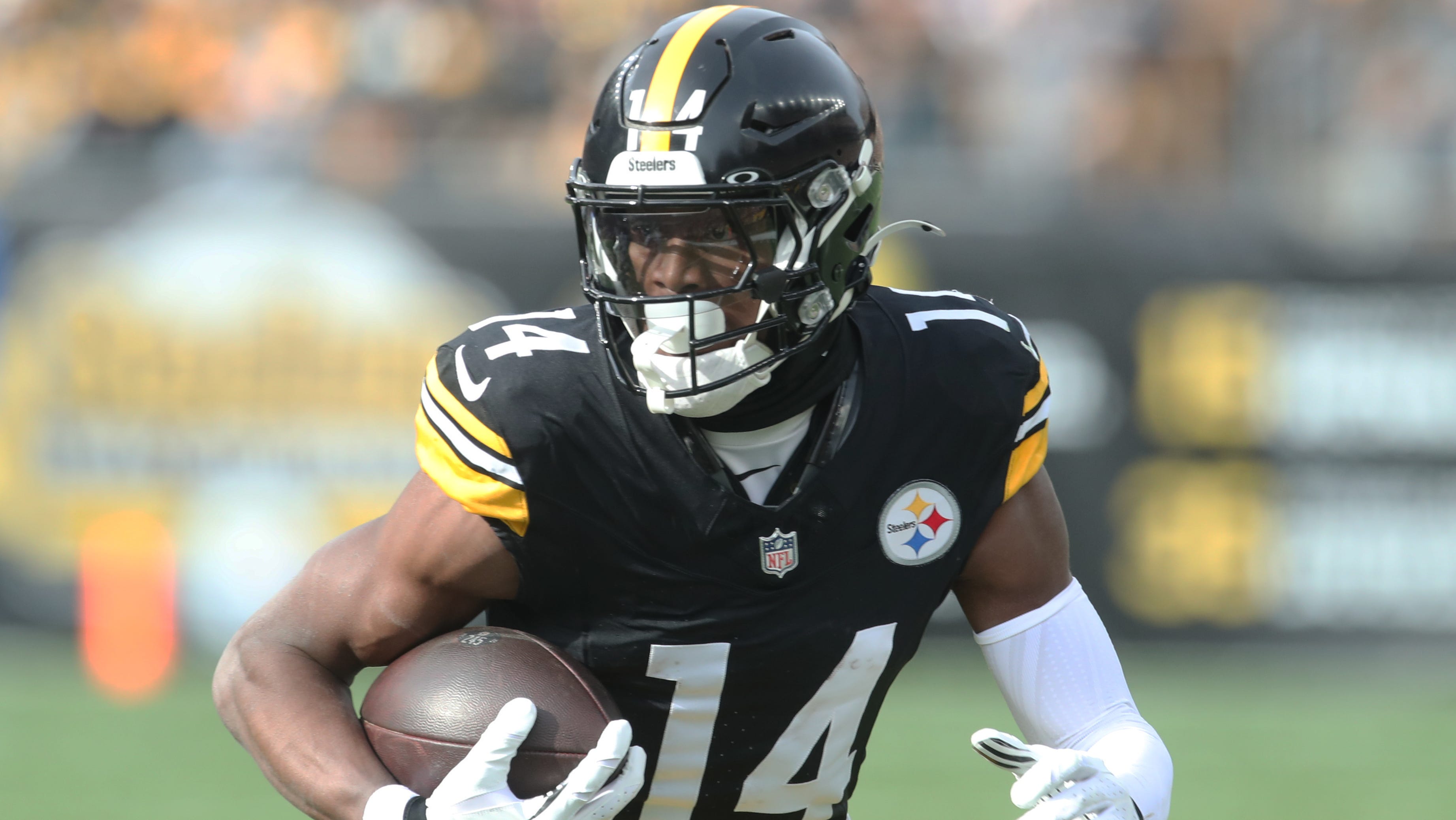You may know Jeff Francoeur as the former outfielder who broke into the big leagues with a historic flourish in 2005, spent 12 years in the majors and now serves as an analyst for TBS.
I met Francoeur in 2011, when he was a jolly presence inside the clubhouse of the Kansas City Royals. Francoeur was a veteran on his fourth team, and he had a productive season in right field. But his most valuable contribution may have come from the bond he built with left fielder Alex Gordon, a former top prospect whose early career had underwhelmed.
Gordon and Francoeur were natural opposites; Gordon was an introverted grinder with an insatiable work ethic. Francoeur was an extrovert who could joke with a wall.
Gordon pushed Francoeur to work harder. Francoeur gave Gordon an outlet to relax. One day in Minnesota, Francoeur recalls, Gordon was itching to get to the ballpark, worried about starting his routine. Francoeur had a better idea: Let’s play 72 holes of mini golf at the Mall of America.
“I don’t know what it is,” Gordon told me then. “But there’s just something about his personality.”
Gordon had a breakout summer that year, and the story left an impression on me.
These days, when Francoeur isn’t broadcasting baseball, he spends his days coaching his four kids in softball and baseball and co-hosting The Pure Athlete podcast, which focuses on youth sports and coaching.
So let’s start with a simple question: What attributes do you think make a great teammate?
The great teammate is the guy that, when you’re not doing well, and you’re struggling, and things aren’t going great, you’re able to see the bigger picture. You put others first. You’re able to be happy for other people. I always talk about the happy hit guy, right? Everybody has those guys on the team, you lose 10-2 and this guy gets four hits, and after the game, he’s smiling, happy, getting in the shower. “Hey, I got four hits.”
The best teammates put other people first. David Wright was that guy for me. He always put everybody else on a pedestal. Tried to put his teammates on a pedestal, make them feel great. And at the end of the day, you know what? David was superior to a lot of people, but you never felt that. Whether you were the 26th guy on that team or you were the chef, he made people feel great.
Were there certain guys that didn’t have the talent of David Wright, but were still able to be that positive, good vibes guy in a clubhouse?
I think about David Ross, man. I played with Rossy for a couple of years in Atlanta. And, of course, what he went on to do to Chicago. You can look at his numbers when they won the World Series. They weren’t eye-popping. They’re not like, “Holy crap, he had 42 home runs and was the man.” He was, more times than not, the backup catcher. But he had the ability to help people go through things. Those are the guys that you wanted to play with. Leaders don’t have to be the stars of the team. Does it help? Absolutely. But it’s the guys that when they’re struggling and they’re in the cage talking to other guys, talking them up, doing this while they’re sitting there struggling. That’s tough to do and it takes a special person.
In baseball you always hear about “great clubhouse guys.” One example that I was thinking of right now is Joc Pederson. They’re big personalities, fun to be around. They bring some joy to the room. Are those two different types of leaders?
I think they’re very similar because of what we talk about when you’re struggling and you go to the yard. You’ve seen it enough. It can be a lonely place, man. You’re searching for hits. You know you’re not playing well. The manager, let’s be honest, is probably thinking about, “Should I write his name in the lineup today?” You’re like, “Crap, what should I do?”
I remember Kobe Bryant had that great quote: “Leadership is a lonely place.” Sometimes being a leader is calling teammates out. Not in front of everybody, not embarrassing them, but saying, “Hey, you got to pick it up. You got to do this, you’re not putting this time in.”
I go back to Tim Hudson my second year in the big leagues. I let a few balls drop in shallow right field. I came in and Huddy said, “I don’t think you’re ready. And I don’t think you’re getting a good jump.” And he said, “Whether that’s concentration, or you haven’t been taking balls in BP, you’ve lost a step.” And I remember he kind of called me out, and he didn’t call me out in front of everybody, but he got me on the bench. I was pissed at first, to be honest with you. You’re like, “What the heck is this guy talking about?” And as I sat there for a while, went back out, I started thinking, “Maybe he’s not wrong. Maybe I’m not doing what I’m supposed to do.”
I think that’s the thing too. Leadership, you can hold guys accountable in the right way.
When you came to the Royals in 2011, a lot of guys talked about how you just brought a really positive energy to the clubhouse. I’m wondering: Was that a skill that you knew you had? Was that something that came naturally? Or is that something you had to work on?
You know what, man? Someone’s always got it worse. I remember numerous times — and I always thought of this — when I was struggling playing baseball, my dad said, “You’re getting paid really well to put on a uniform and run out there every night.” And my dad was like, “For 38 years, I put a suit and tie on and went to work.” So I think there’s always perspective.
I choose joy, man. I choose to elevate others. I was a happy guy. I enjoyed playing. And I didn’t like seeing people down, man. When we were in a baseball locker room, these are my guys. I’m spending more time with them than with my family. I want them to feel good about things. I want them to be happy. I think it’s an attitude. It’s how you choose to look at it.
Your parents were both teachers, correct?
Yeah, they were both educators.
Do you think that related to the sort of values they imparted on you?
Even when I wanted to get my priorities out of line — which God knows I did — it was going to be God first in our house, family second, school third and sports fourth. In this day and age, I feel like we’ve gotten that so backwards, and the priorities are out of line. I knew with my family, those were the priorities.
You can ask my high school coaches. I got held out of a high school baseball game one time. I had to miss the first half of a football game — a varsity football game. You know, football in Georgia is big! And my dad sat me out of a first half because I did not do what I was supposed to do. My parents set the priorities and set the standard. If I didn’t reach those, there was gonna be repercussions.
You mentioned just having a positive attitude. This may sound funny, but sometimes for me, that’s hard. It can be something as dumb as, you’re dehydrated, or you haven’t eaten, or something’s going on in life. It’s so easy to get irritated. Did you have to be intentional about it? Or was that really something that came natural?
I think there was definitely something natural in that. But there’s no doubt I had to choose that sometimes.
There were numerous days I came to the park and there’s no doubt I was in a bad mood or like, “This sucks, I don’t want to do this.” And I said I can either choose to be like this, and let’s be honest, who the heck wants to be around that? I didn’t want be around that. Or I can choose to put a smile on my face, turn this around and be positive and be a guy that people want to be around in the clubhouse and the coaches want you out there.
My mom and dad did a great job of helping me realize to choose joy. Choose to be happy, choose to impact people.
Do you think that once guys get to the major leagues or professional sports, you can teach people to be good clubhouse guys or good locker room guys? That you can teach them to be more positive?
People get to the big leagues, and I think sometimes they lose perspective on what got them there. Like I said, I chose it. You know what? I’m going to put a smile on my face and I’m gonna bust it today. And I think a lot of people can do that. And again, sometimes people need help to get to that, need a push to get to that.
I always say that the best hitting coaches in baseball are not so much the X’s and O’s hitting coach. They’re the therapist. Everybody loves (current Phillies hitting coach) Kevin Long. Do you know what Kevin Long does well? Some days you come in, and you’re like, “Man, I can’t get a hit.” He’s like, “Hey, let’s just talk for 20 minutes. What are you thinking at the plate? What are you feeling?” And you’re able to let that emotion out.
Leaders can listen, man. They can meet you where you’re at.
When you coach kids, whether it’s baseball, softball, is there a way you try to impart this on them?
You come watch a practice I run, and it’s intense. I yell, I’m loud. These girls, they know what to expect. But during the games, man, I am pure positivity. I’m not negative now. If they don’t hustle, if they’re not paying attention, they know Coach Jeff’s gonna bring the wrath on them, right? Those are the intangibles. But I learned a great lesson.
Two years ago, I was coaching my daughter’s travel softball team, and a girl on our team dropped a fly ball in right field. And I’ll be honest, I came unglued and I was pissed. I was screaming at her, and this wasn’t my own daughter. It was one of my best friends, actually — his daughter. And I literally tell you, that was on a Sunday afternoon.
On Monday night, I did (color commentary on) the Braves game. And that was the one Braves game where there was a fly ball hit to right field and Ronald Acuña dropped it, just flat dropped it. And, dude, it hit me like a ton of bricks. I’m like, I just yelled at a 10-year-old girl for dropping a fly ball in right field and here’s one of the best players in baseball who just dropped a fly ball in right field. It just was like one of those “check yourself” moments. I was like, holy crap, what am I doing? People are gonna make mistakes.
But I feel like those moments right there are so teachable. And if you let it really infuse into you, you can grow and you can become a better coach, a better father, a better teammate, whatever it is.
Bobby Cox, towards the end of his career, I remember talking to him one time, and Bobby’s like, “If I could go back and change one thing about my managing career, I would enjoy the wins way more than the losses. I would celebrate the wins way more than the losses.” And I think that’s the thing.
Here’s one of the winningest managers in the history of baseball, talking about how he never celebrated the wins enough. I just thought that brought a good perspective.
(Illustration: Dan Goldfarb / The Athletic; Rob Foldy / Getty Images)




























































